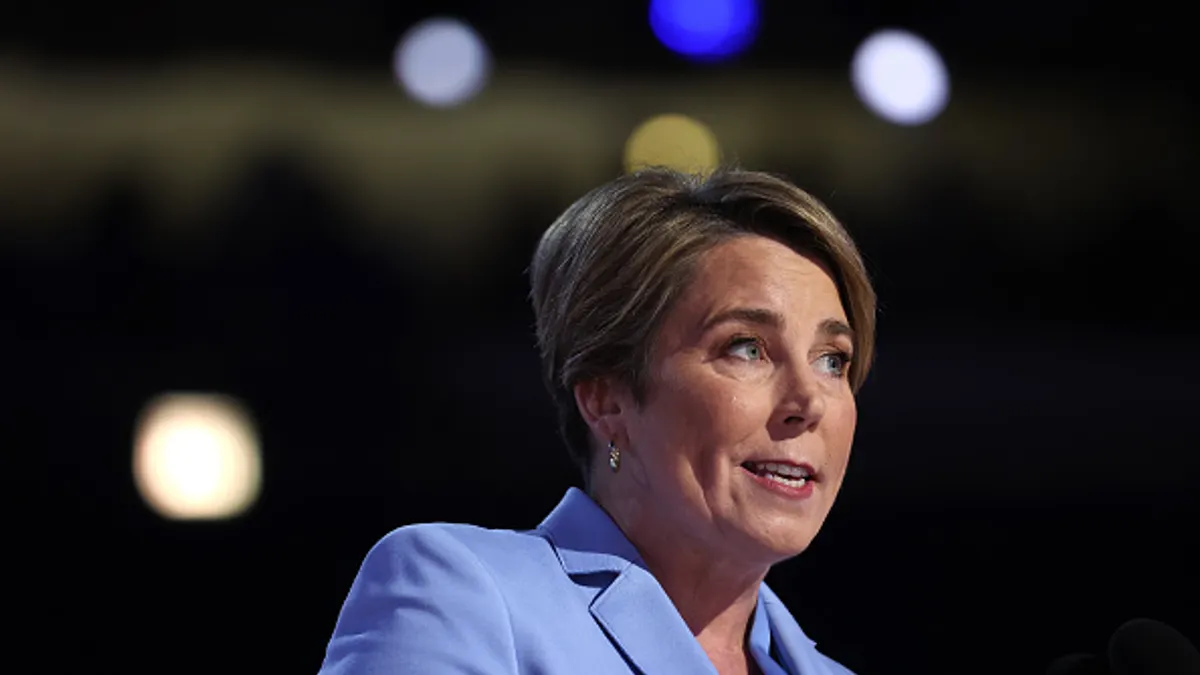Massachusetts Society of CPAs CEO Zachary Donah is waging an uphill battle of sorts to get the state’s certified public accountant licensure legislation passed this year. As a growing band of over 20 states have passed legislation aimed at lowering barriers to CPA licensure, Donah’s eyes are on two companion bills introduced by Bay State lawmakers that would do the same in Massachusetts.
One headwind: the state’s two-year legislative session which usually draws out a bill’s advancement. The legislation was introduced in the first of the state’s two-year legislative session, in which new bills typically are debated during a hearing, according to Donah. The final vote on most bills usually takes place in the second year, he said.
Still, MSCPA is talking to Gov. Maura Healey’s office — which has been reviewing policy around professional licenses — along with state legislators to make a case for getting it passed sooner rather than later. Donah’s hope is to either get the legislation tucked into one of the larger bills that could get passed this year or to see it through as a stand-alone bill.
“We definitely feel some urgency,” Donah said in an interview Tuesday. “We certainly don’t want Massachusetts to be an outlier among states when it comes to rules around licensing…it’s really critical that we align.”
Massachusetts's legislation was introduced earlier this year: House Bill 352 and Senate Bill 209, two companion bills with identical language.The Massachusetts law would offer CPA candidates three routes to licensure.
Under the current system, Massachusetts requires 150 hours of college credit that typically equals five years of college or post-secondary education; one year of professional experience which it defines as 2,000 work hours; and passage of the CPA exam. Under the new proposal, CPAs could get certified by completing a bachelor’s, two years of professional experience and passing the CPA exam, or alternatively getting a master’s or a bachelor’s and 30 additional credit hours, one year of professional experience and passing the exam.
The proposed legislation removes the reference to 150 credit hours intentionally, because legislators are starting to see bachelor’s programs with 90 credit hours rather than the traditional 120, Donah said. “It’s a way to create or make our statue a little bit more evergreen to accommodate potential future programs,” he said. As it stands currently the effective date for the legislation is Jan. 1, but that likely would need to be changed if the legislation doesn’t pass until next year.
The CPA initiatives are gaining speed in many other states, with most setting Jan. 1, 2026, as the effective date for the new rules. That could be a pose a problem for those states that don’t remove or provide an alternative path that doesn’t include the 150 credit hour requirement: They could be at a competitive disadvantage when it comes to attracting accountants who might opt instead to get certified in another state with less onerous requirements, CFO Dive previously reported.
To be sure, Massachusetts’ CPA bills have made some progress to date. At a June 2 hearing on them at the state Capitol, they drew no opposition, Donah said.
Among those who testified in support of the legislation was Sean Morrison, a principal at Quincy, Massachusetts office of the accounting firm of CliftonLarsonAllen. He said his firm has experienced firsthand the need for more CPAs, noting that the amount of work and demand for CPA services continues to grow as the supply shrinks. CLA is using new technologies to meet some of the demand, but Morrison said they depend on CPAs to provide the technical resources and support clients expect and want.
He also asserted that the new pathways’ requirements still maintain a high bar — requiring CPAs to pass the rigorous exam, that only has an initial passing rate of about 50% — and noted the existing CPA pathway with the 150 hour credit requirement has not always been in place. “By reintroducing pathways similar to those that existed 20 years ago we’re not regressing, we’re modernizing to meet the demands of our time,” he said.
If the bill doesn’t move this year, Donah said the support the legislation drew at the hearing fuels optimism for its prospects whenever the next stage comes. “We feel confident,” Donah said.
Keep up with CPA licensure changes with CFO Dive’s tracker on the topic here.














